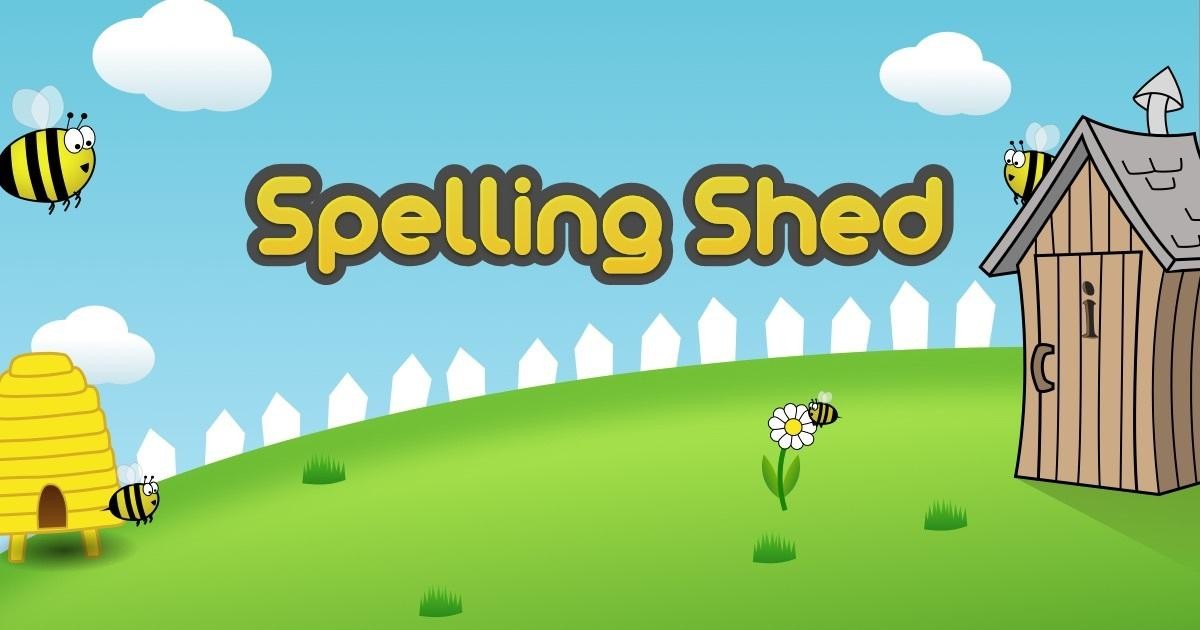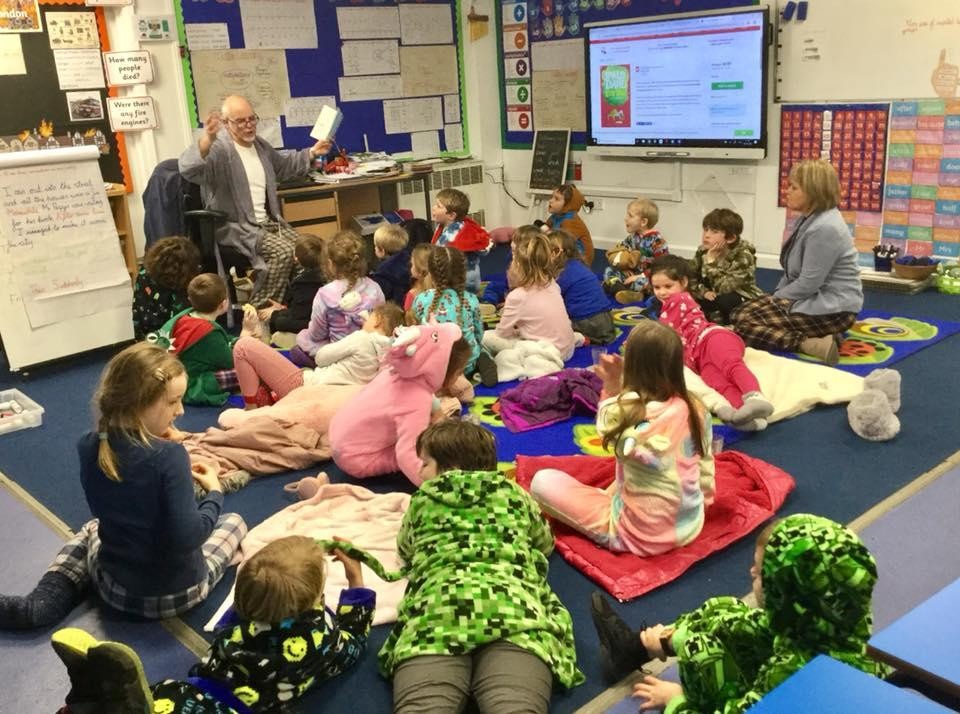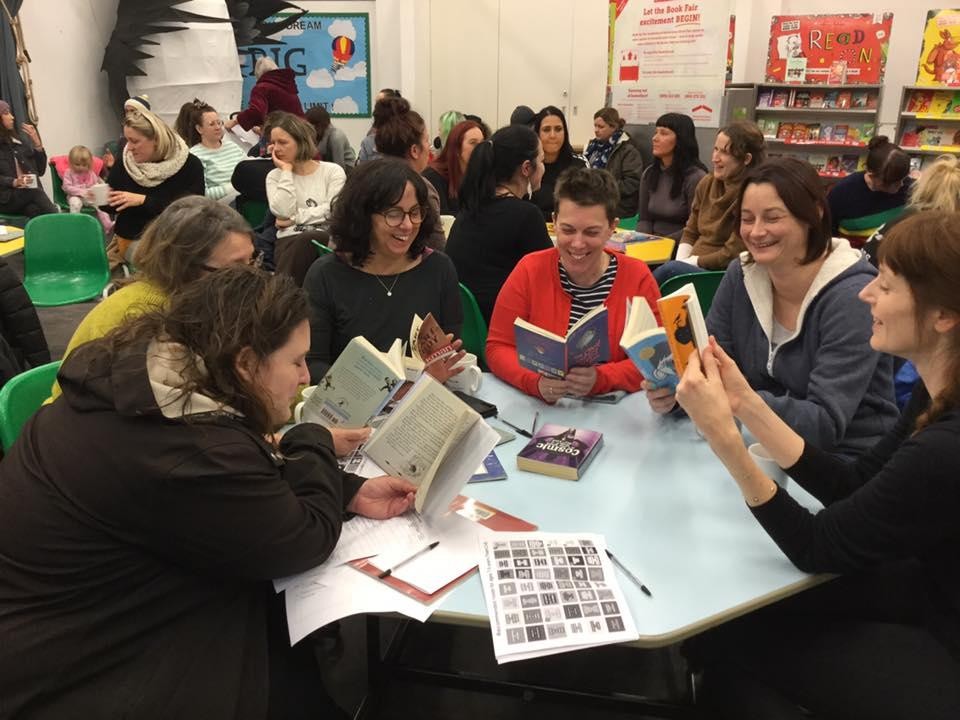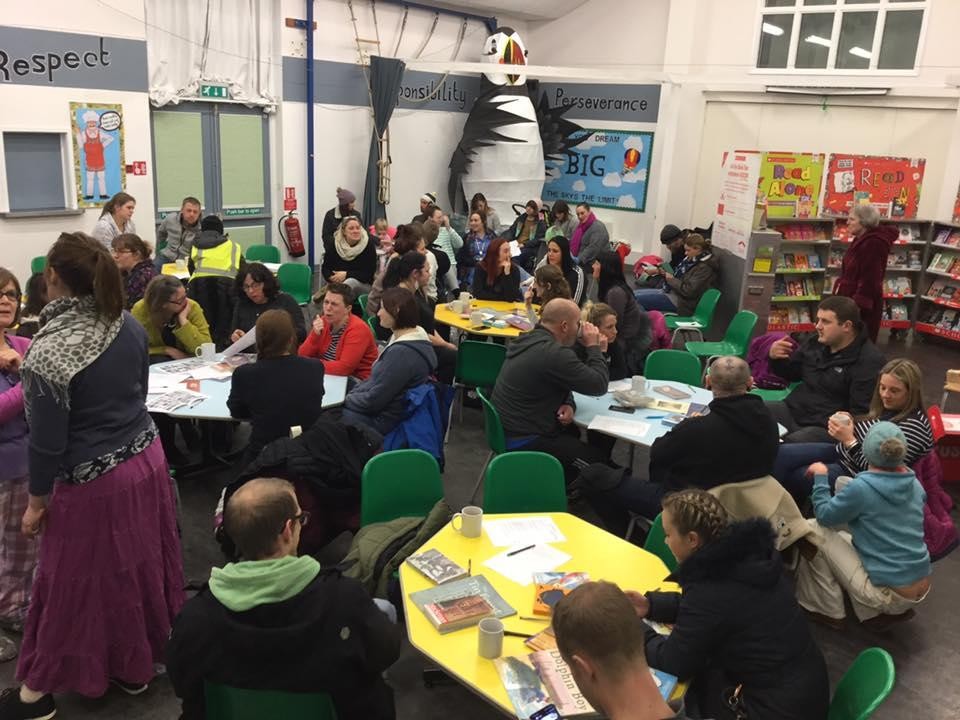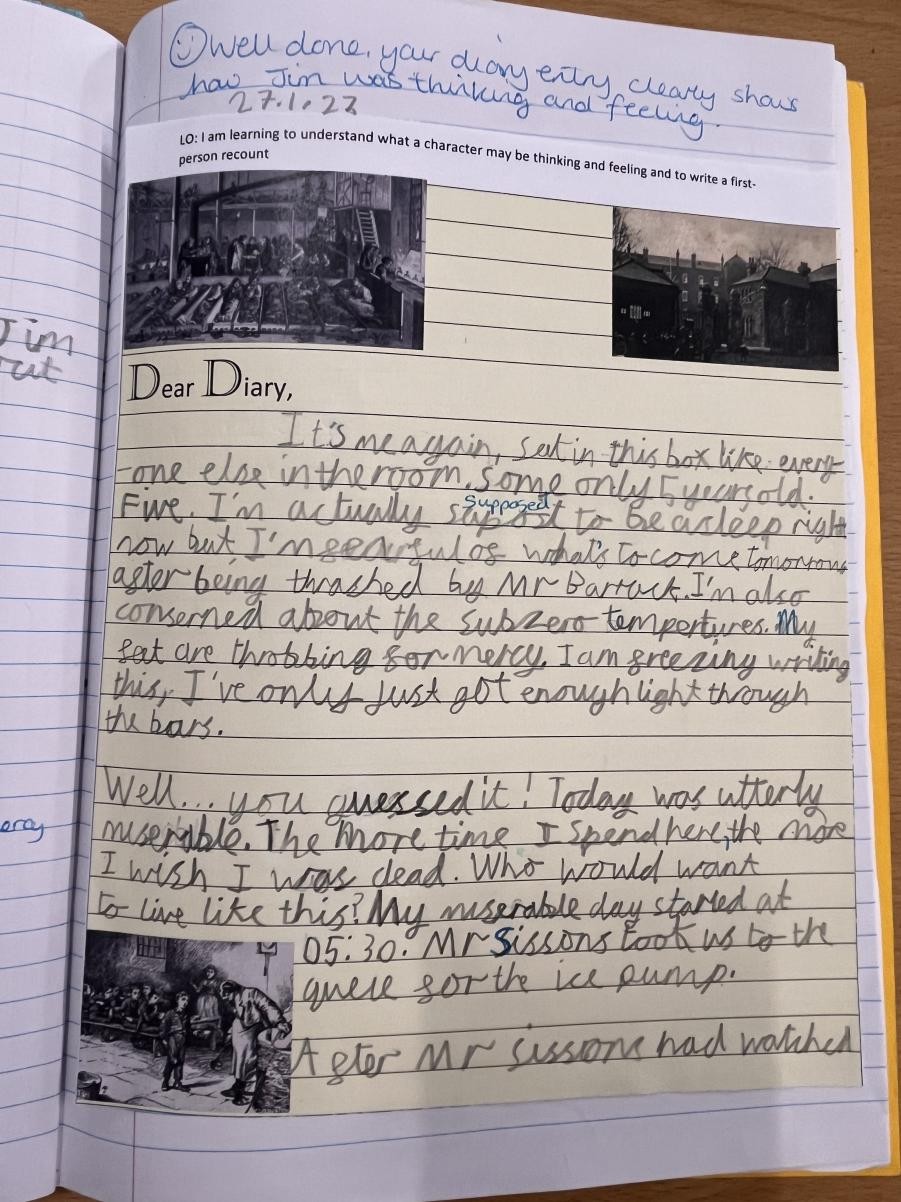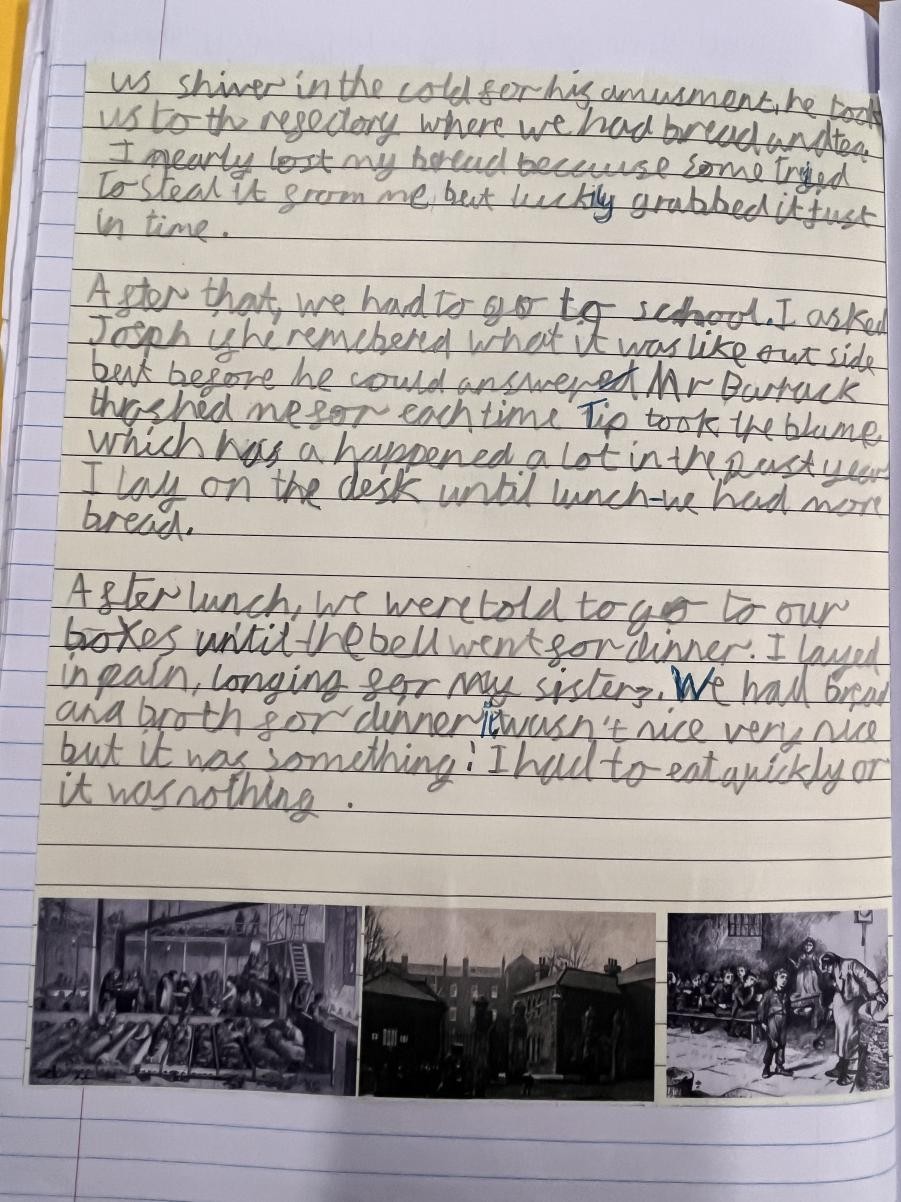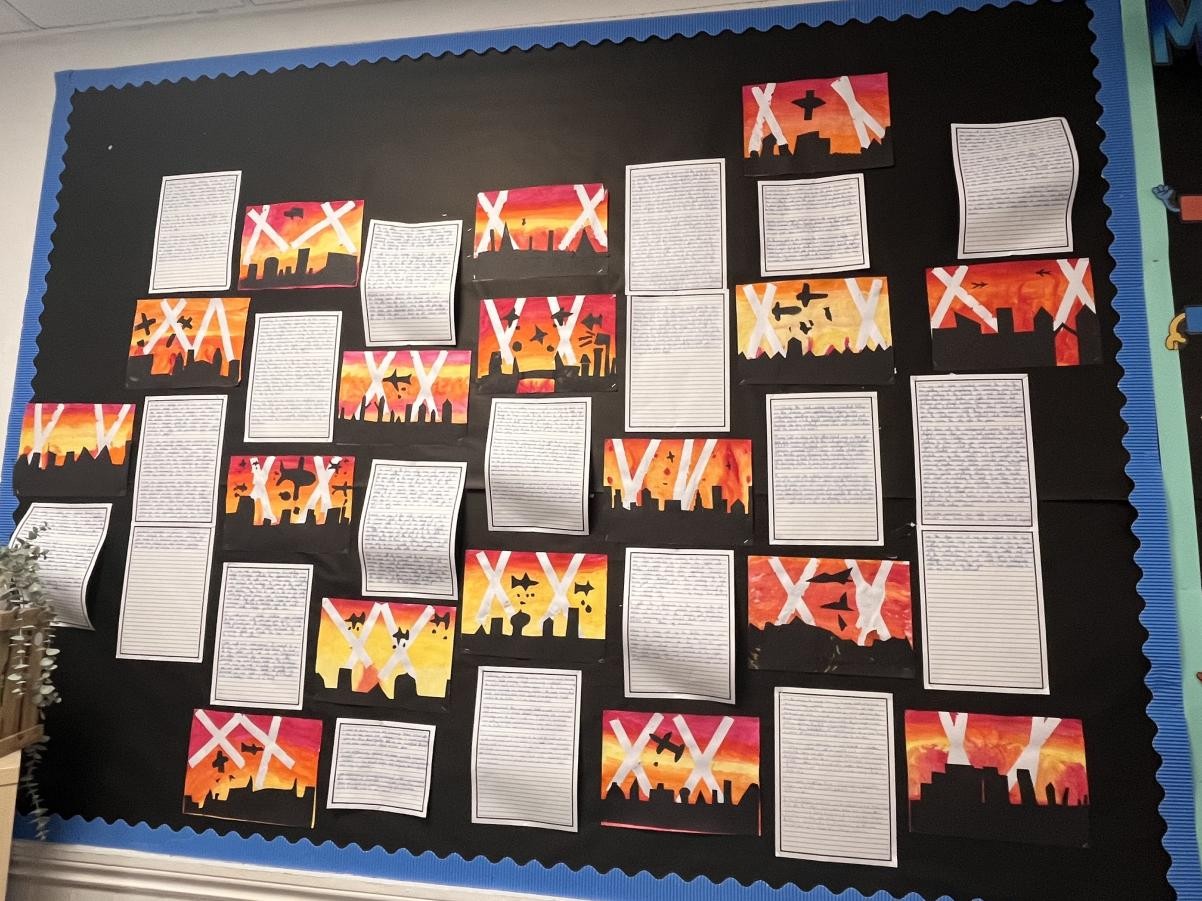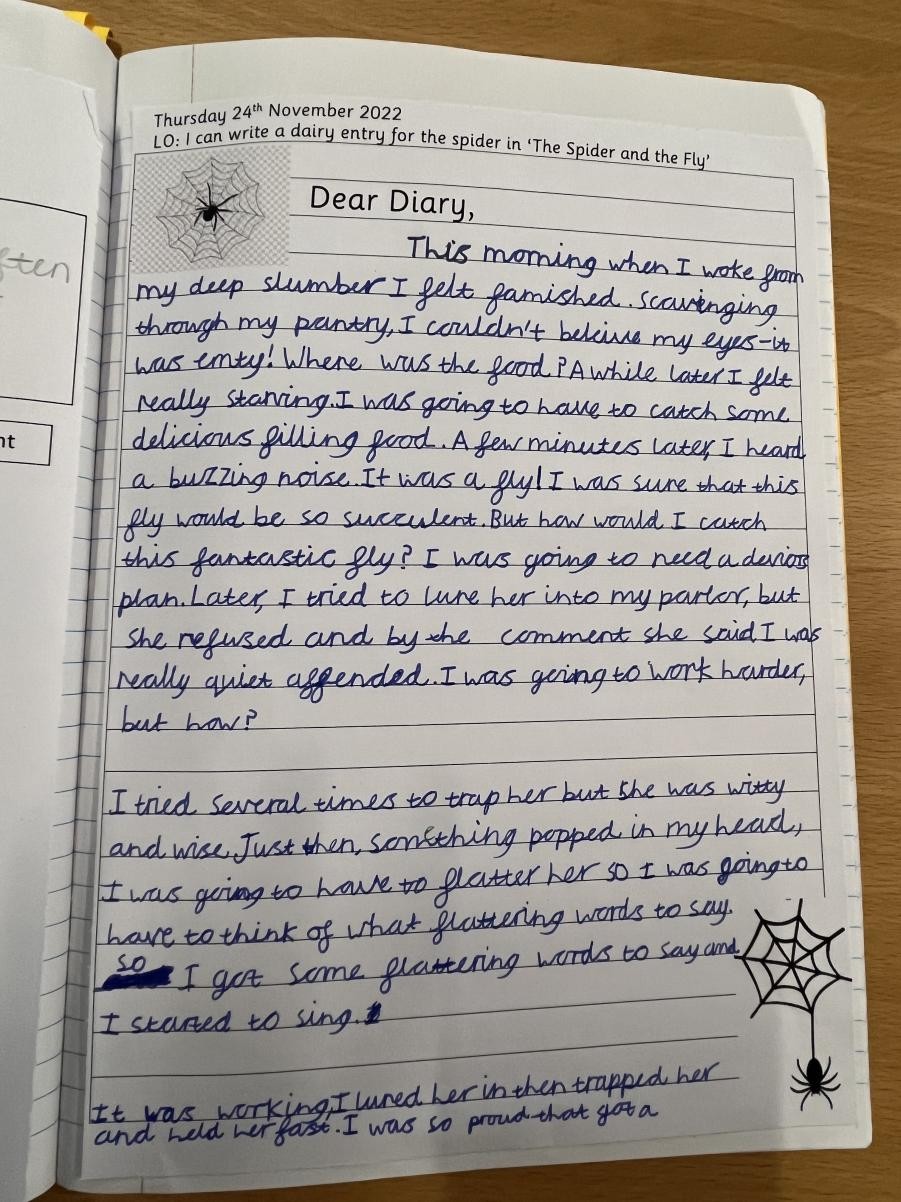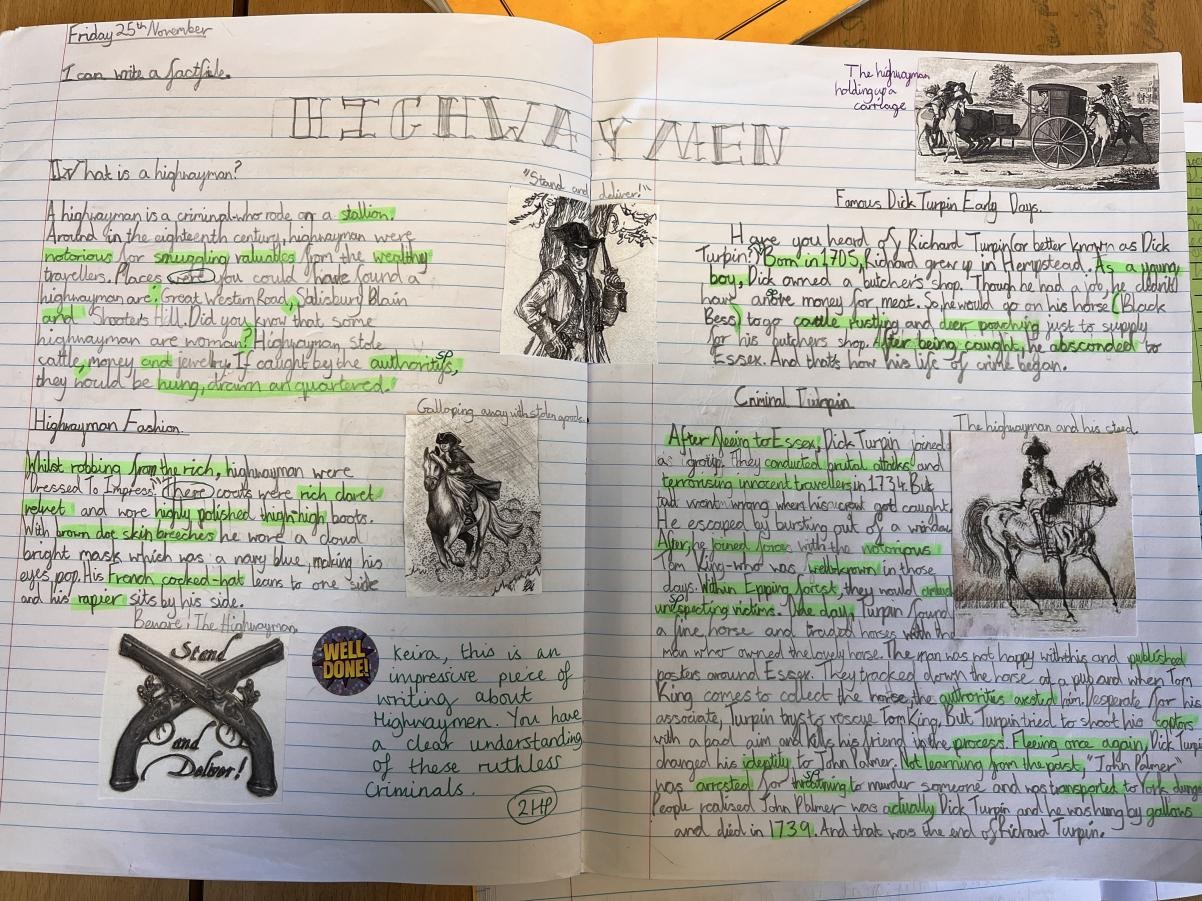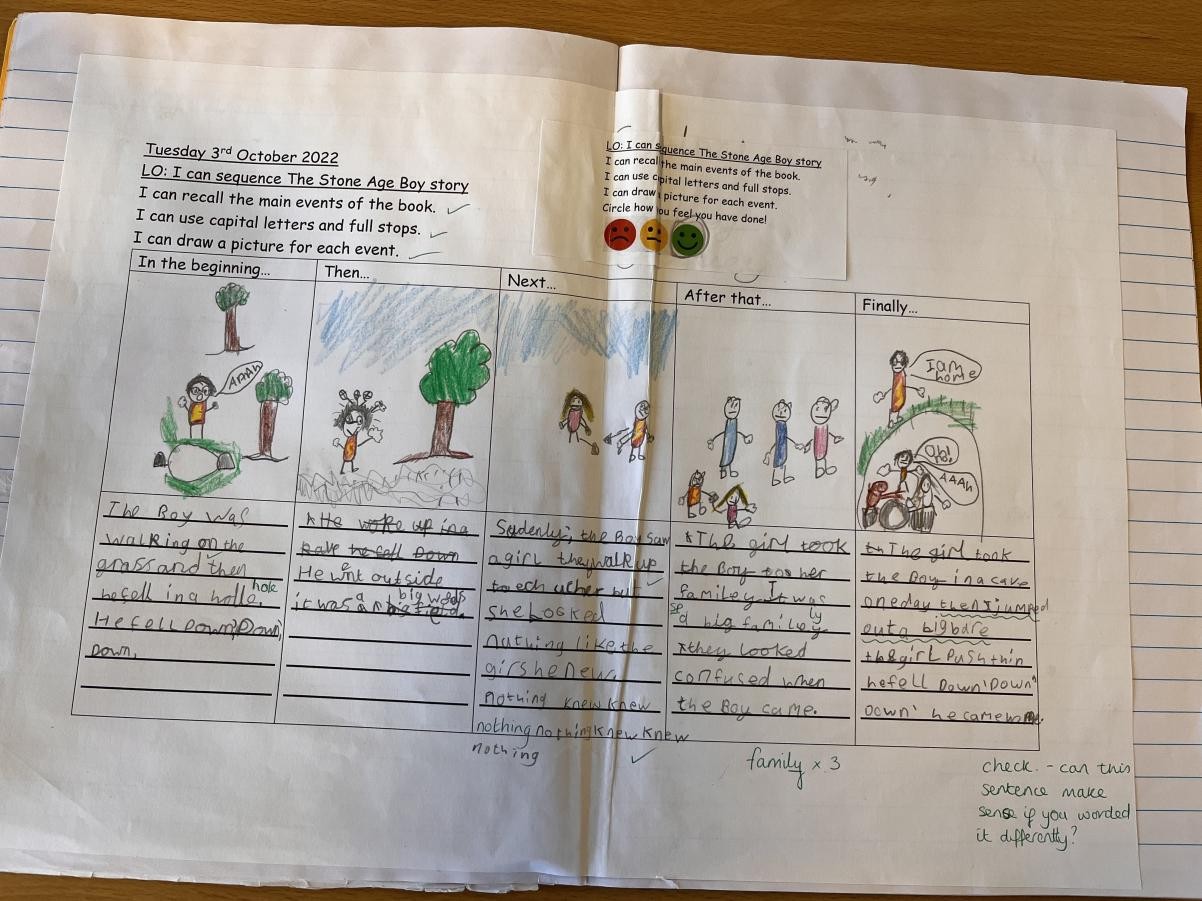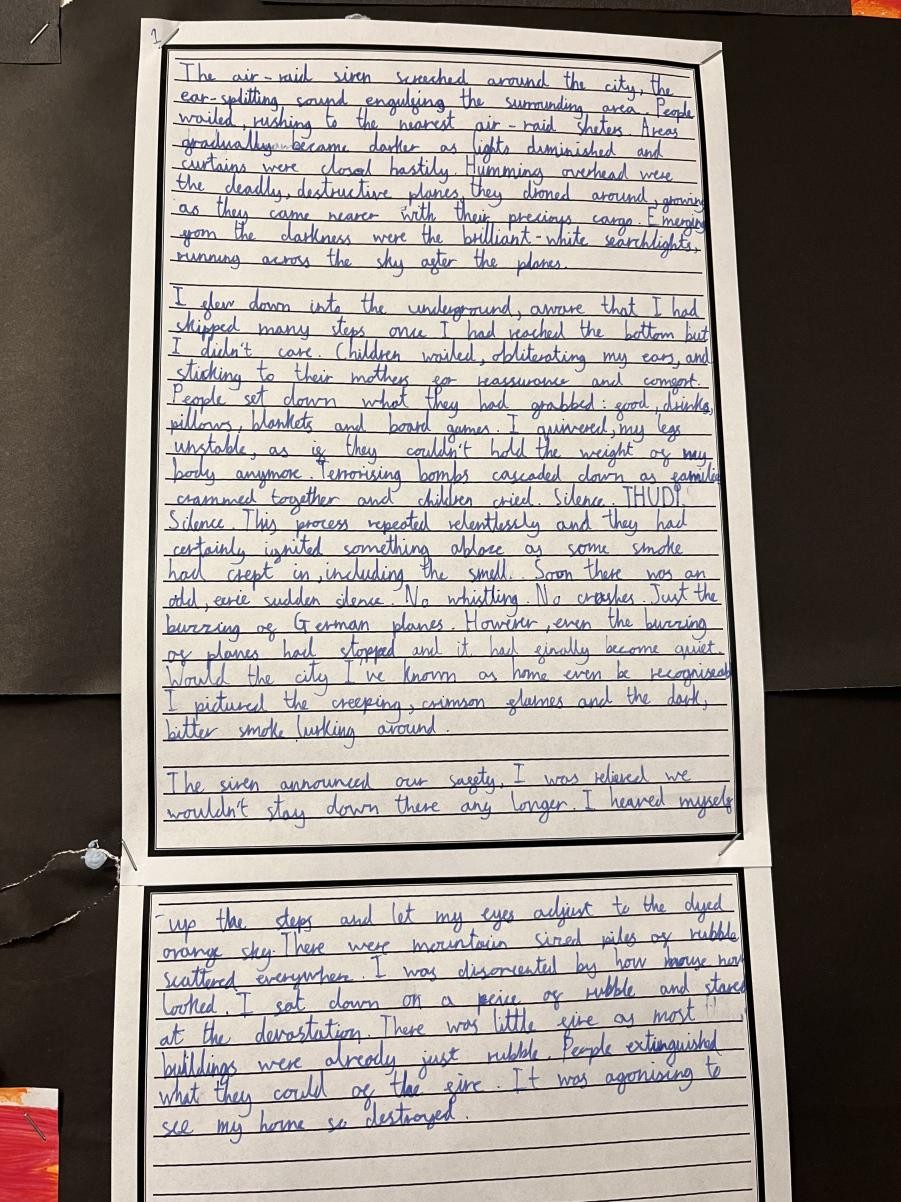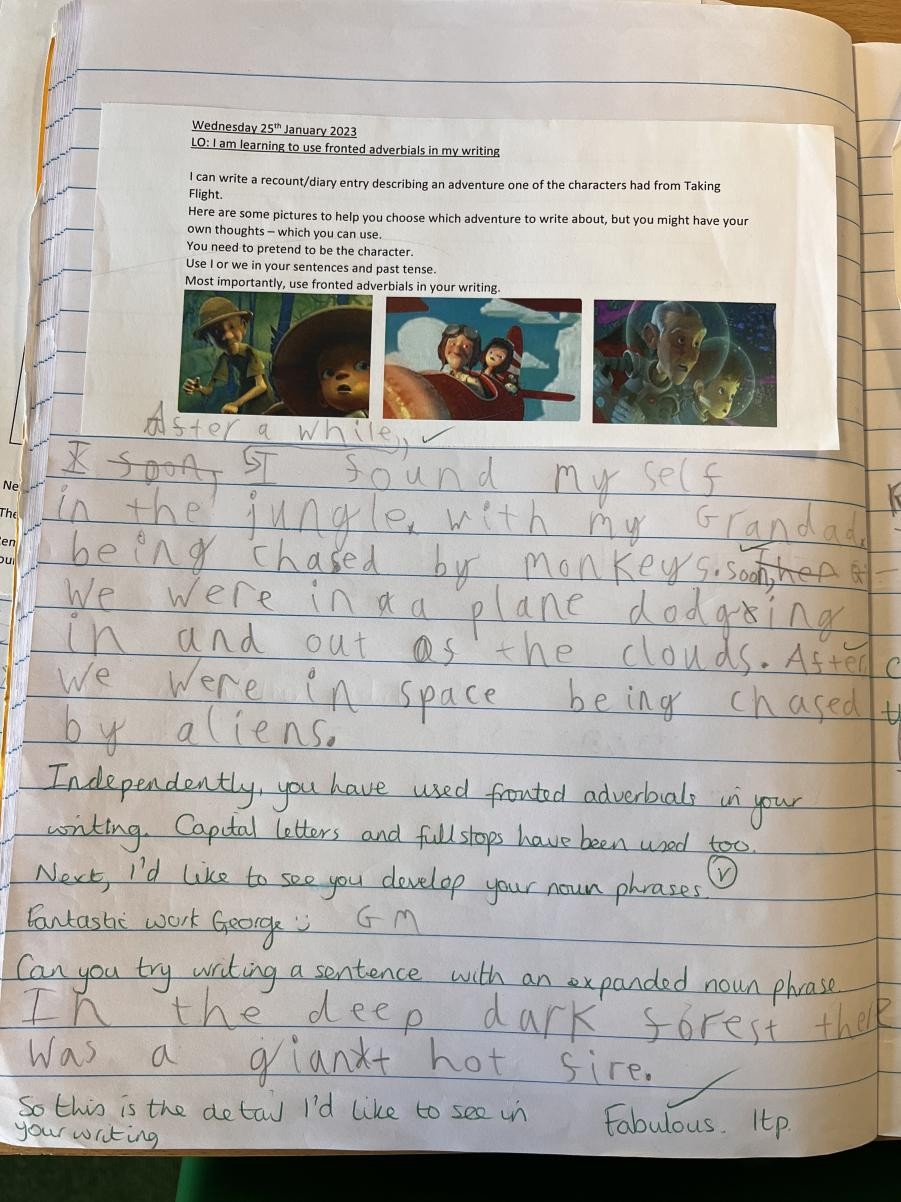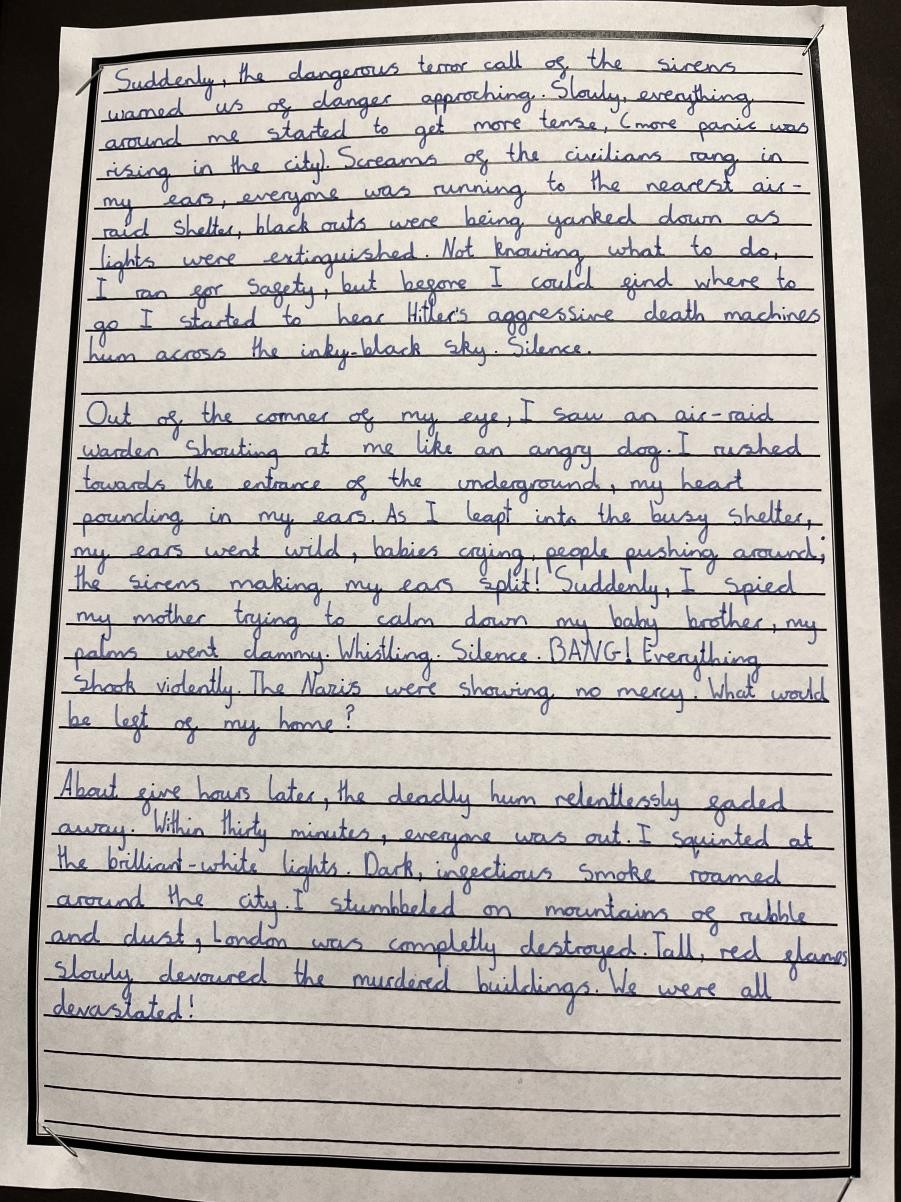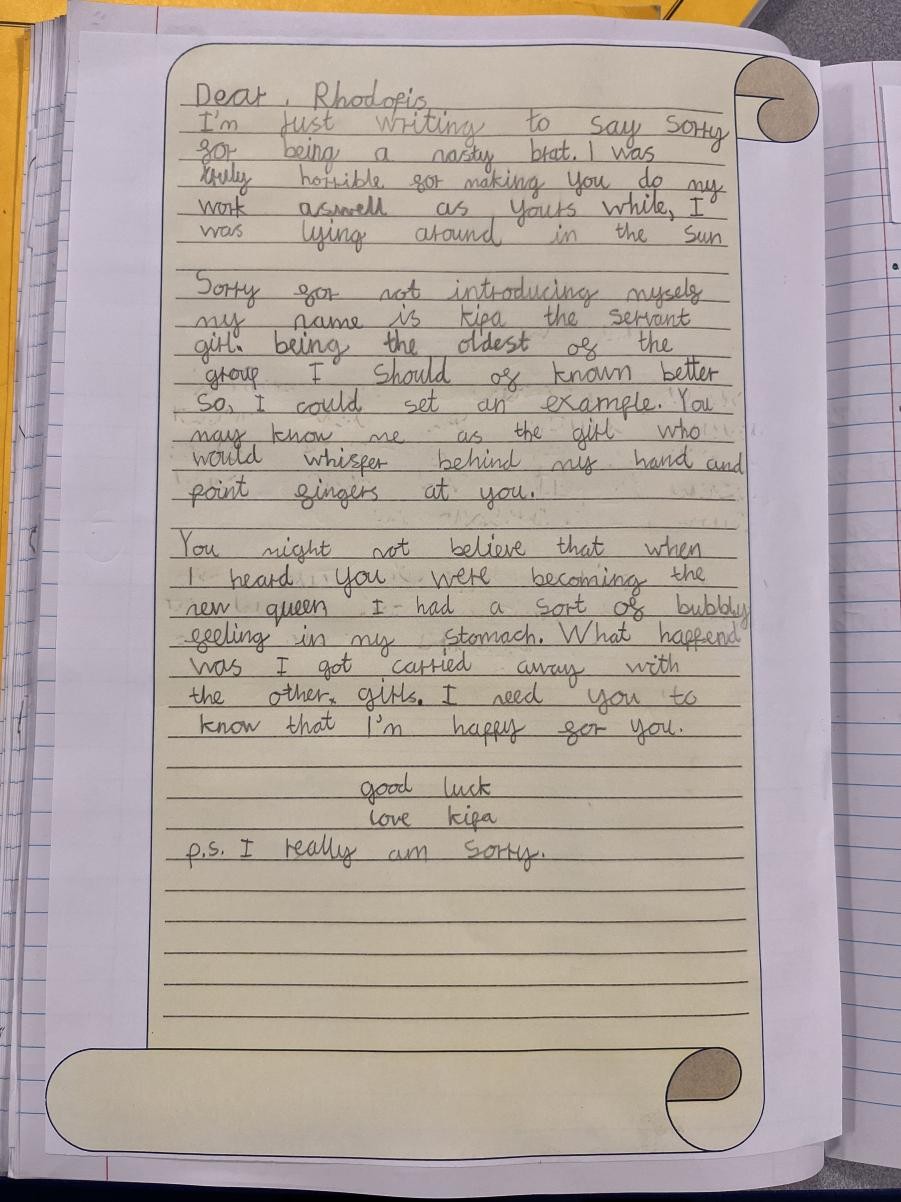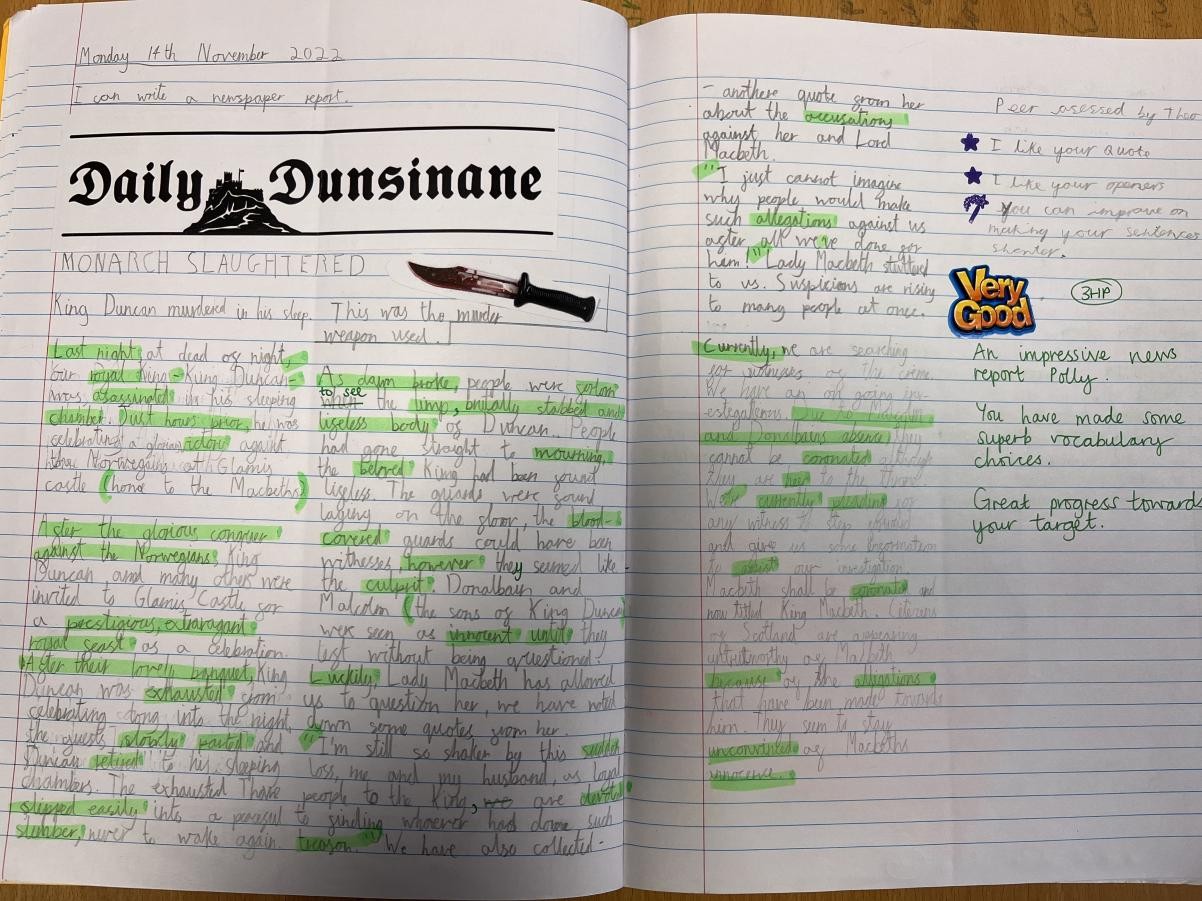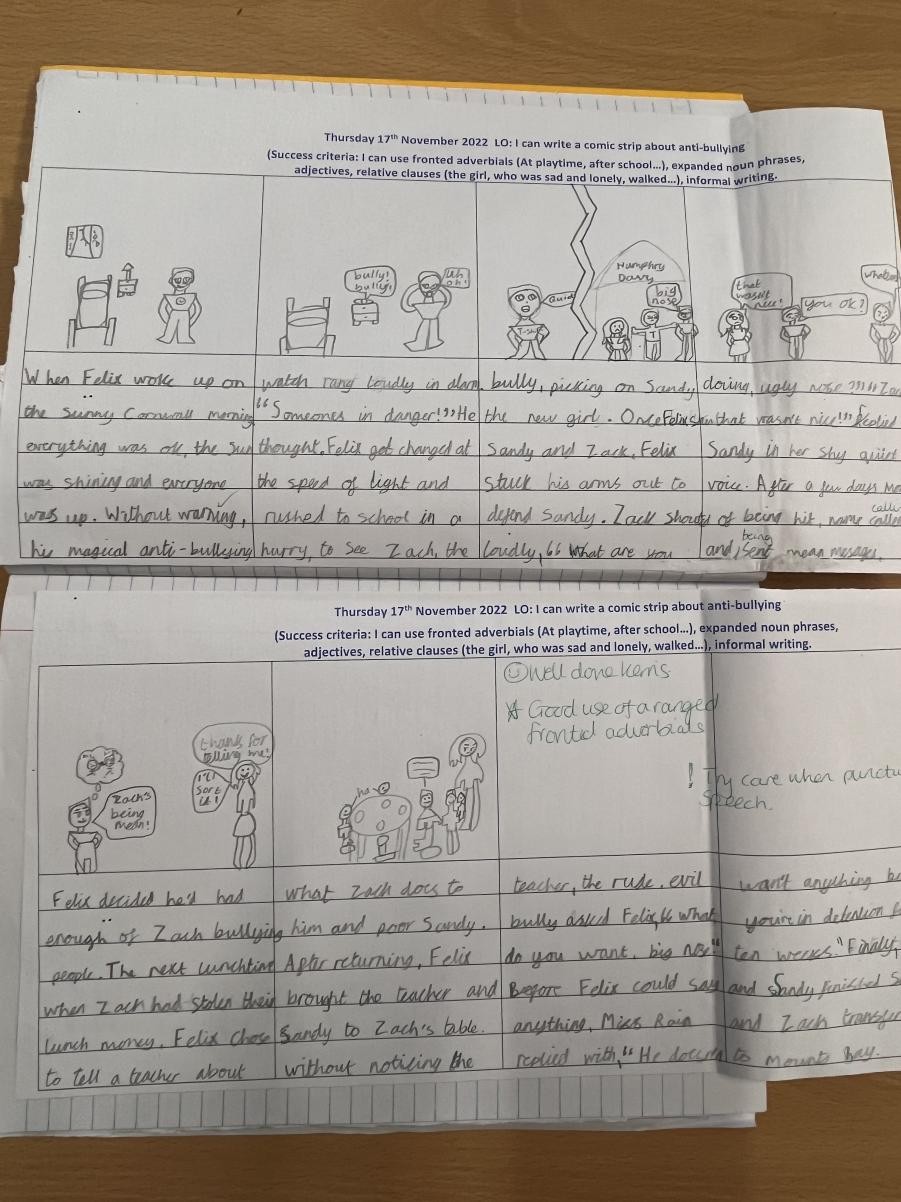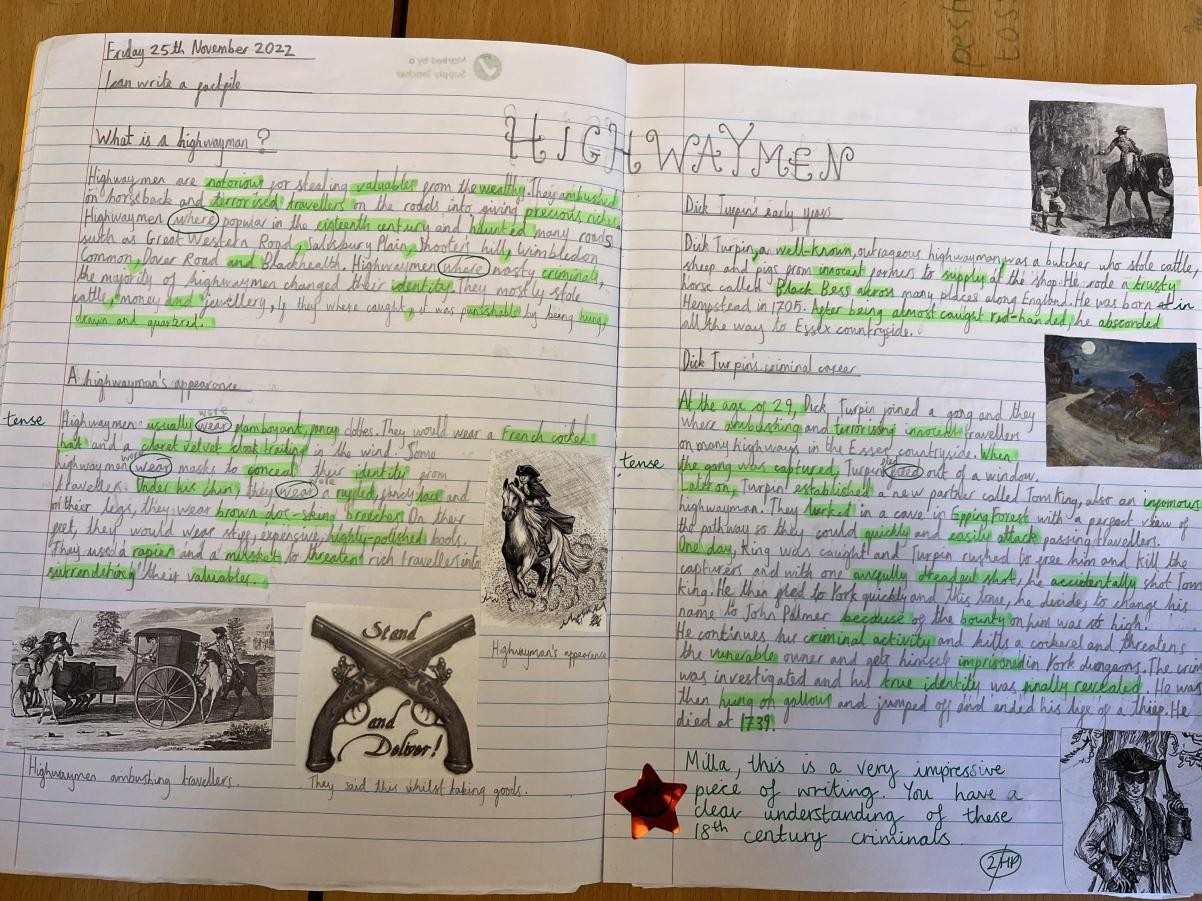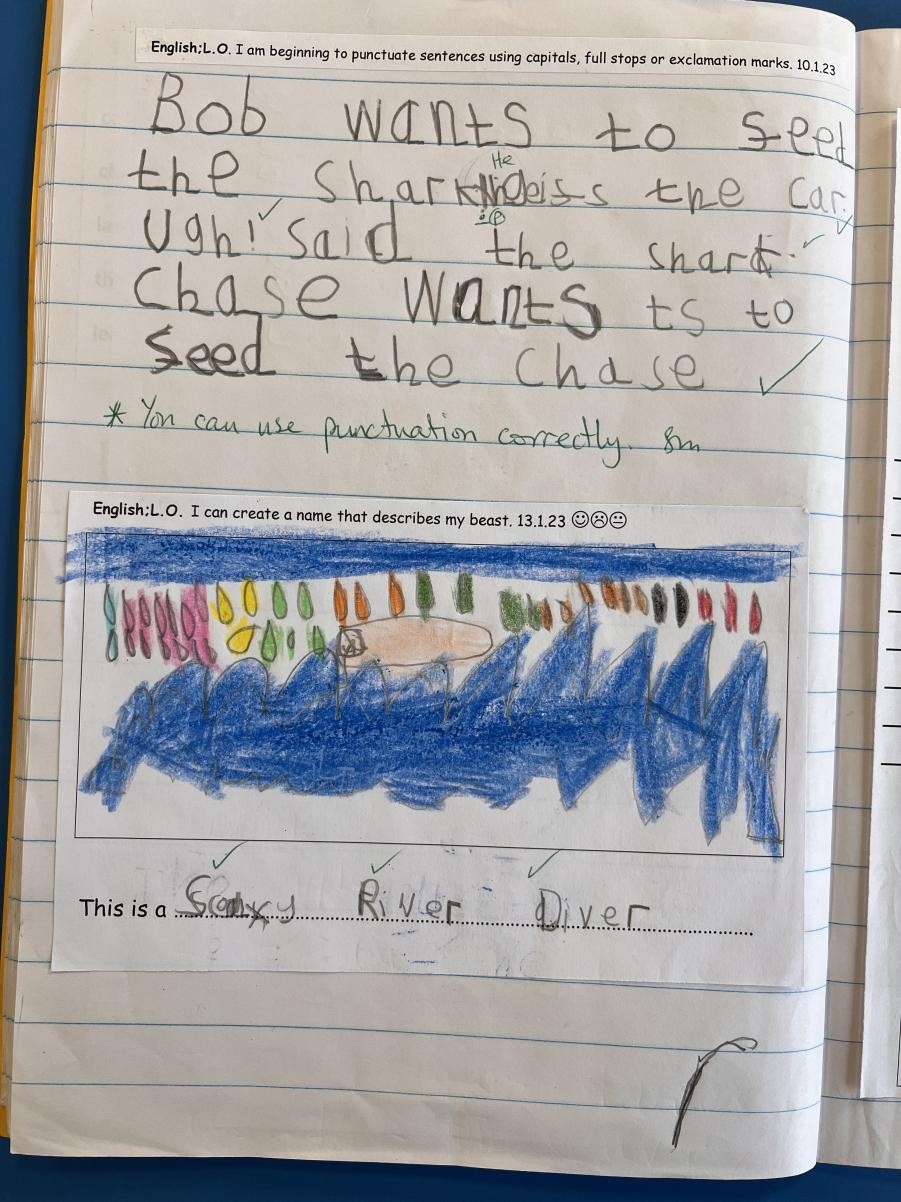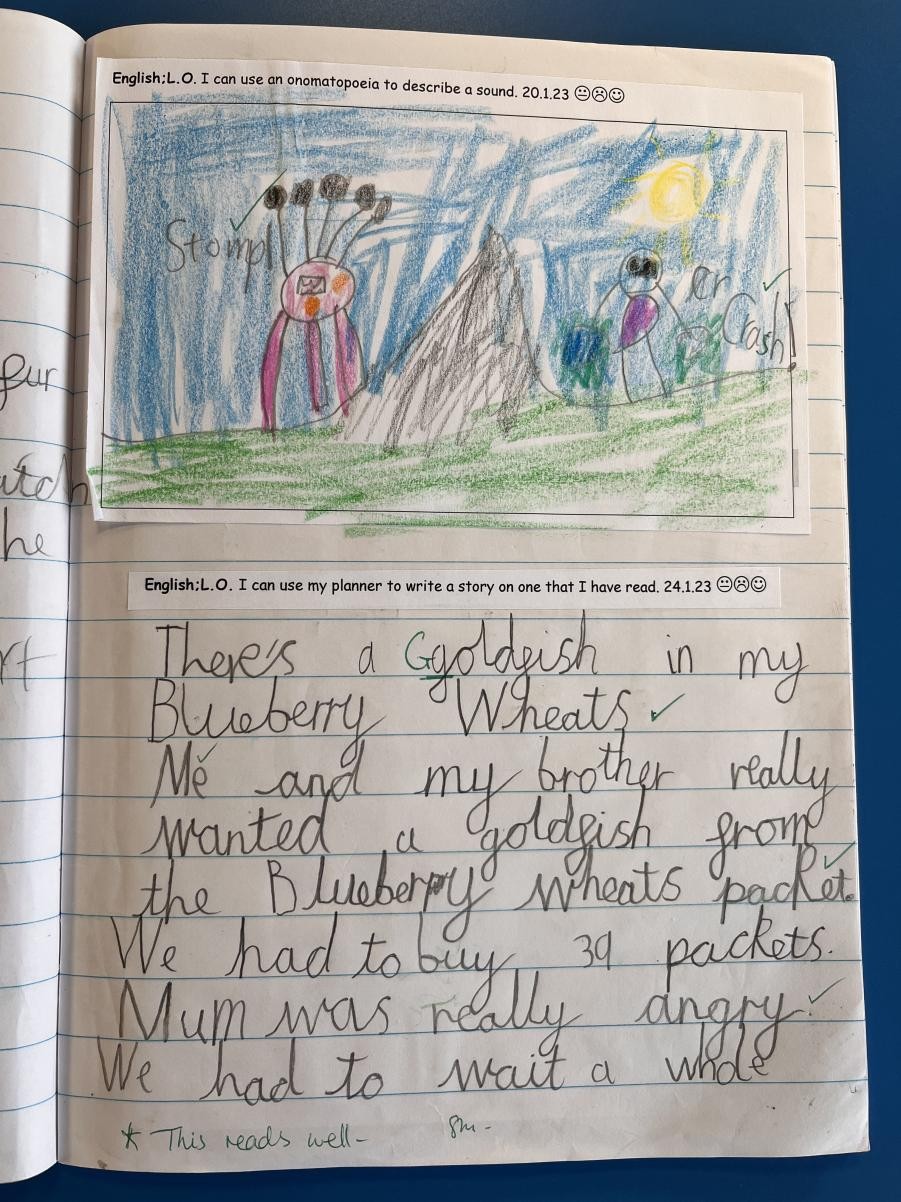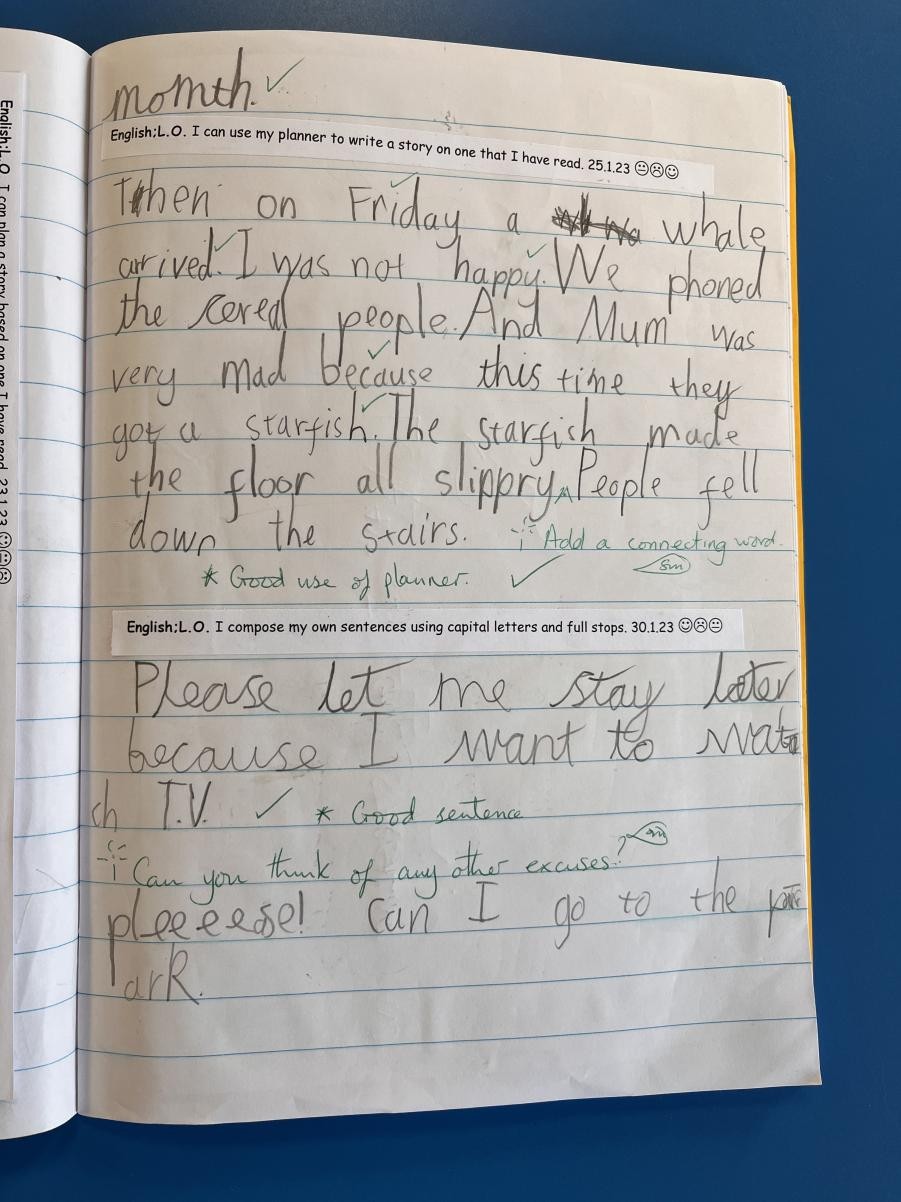English curriculum: writing
"I can shake off everything as I write; my sorrows disappear, my courage is reborn."
--Anne Frank
Writing - who for and why? The importance of engagement and purpose
The great love of reading engendered from an early age naturally feeds into a love of writing and confidence with the written word. The teaching of grammar and spelling starts with our youngest children. The most important aspect in writing is to fully engage children so that they want to write. We do this through high quality class texts and writing for a wide range of purposes, from labels and instructions, to stories and persuasive letters.
Being able to explain clearly and confidently (oracy, speaking and listening)
It is essential that children become confident in expressing themselves orally and then can transfer this fluency into clear written explanations. This ability to be able to explain clearly through speaking and then writing will enable children to access all areas of the curriculum. Writing is linked to our oracy progression grid for each year group. (Yet to be established, but due Sept 2021)
Experience first, write afterwards
We all know that children (and adults) write well when they write about what they already know or have experienced – from the “I can tell you” to the “I can write about it”. This is why we prioritise providing our with children incredible experiences outside of the classroom and encouraging them to discuss and retell. The out-of-classroom trips, outings and visits lend themselves to writing from personal experience whilst gaining a wider working vocabulary and exploring the different genres of writing. Even a trip to the wild area on our school grounds will inspire the best poetry!
For example:
- the importance of writing letters or diary entries to share their experiences, thoughts and opinions - these genres are visited often as they build confidence
- writing poetry in the woods (next to the school)
- diary of tunnelling down a real mine (adventure caving)
- persuasive letter about pollution after visiting a landfill site
- written reports about climate change after attending a conference
- writing instructions on a how to make a toy they have designed and made
- writing a film review after a cinema visit.
- writing questionnaires to the public to find out about environmental awareness
Becoming an editor
Becoming a proficient writer begins with motivation and engagement. Children read and analysing a good model text and learn to orally rehearse text, for example learning to retell a story by heart in Key Stage 1 or “magpieing” phrases and similes in Key Stage 2. In addition to this, the children also learn how to discuss, edit and improve their writing.
With the tools of peer marking, self-marking, analysing model texts, genre ladders and the classroom editing station, redrafting is seen as a vital writer’s tool and a step in the process rather than a means to an end. Resources such as “The Literacy Shed” used throughout the school encourage the application of taught grammar skills which are then contextualised to improve real-life writing experiences.
Resident poet - bring in the expert: to add a touch of inspiration and motivation to our young writers, we have a resident poet who visits the class for a session every six weeks. In between times, the children write poems, stories and songs to put in the poetry corner for her to find on her visits, write poems for crackers at Christmas to pass on to family members etc. The children are constantly offering writing that they have produced at home as a result of Sally’s sessions.
Cross – curricular writing
Cross curricular writing provides the perfect opportunity for children to write for a purpose and to polish the language structures that they have been rehearsing. This runs through our curriculum. For example, a newspaper report on an erosion disaster (geography) or a set of instructions on how to make a puppet (Design and Technology).
Innovation to create new ideas: Ideas need to be kept fresh in order to capture the imagination and engage the children. Our current community writing project links adventure with diary writing. The children have the opportunity to attend Carnyorth Outdoor Centre and create poetry after having extraordinary experiences. Rather than from behind a desk, children will experience the value of writing beyond the classroom. Good examples of this are: diary of a mining expedition, instructions on how to build a shelter, advice booklet on how to safely light a fire.
Grammar, spelling and punctuation: We teach grammar explicitly and use Rising Stars assessment to make sure children are making progress. These technical skills are vital to give the children the structures through which to express themselves.
From Year 1, all children learn spelling through The Spelling Shed and will have spelling homework. Spelling patterns are taught and practised as part of the English lesson.
.
Implementation : What does writing look like in Newlyn School?
- Every class practises Active Literacy exercises daily - with particular time focus in EYFS and KS1
● Handwriting is taught and practised daily in KS1
- Each child throughout the school will write daily and will have opportunities to write eg both formally and scaffolded (extended writes, sentence practice) and independently (eg a diary, writing area etc)
- Modelled writing: Children are taught by teacher modelling of writing and by analysing some good examples
- The systematic teaching of spellings and high frequency through Spelling Shed spellings and daily homework
- writing targets shared with parents termly
- Use of the Literacy Shed / Hamilton for high quality texts and resources
- cursive handwriting is taught from Year 2 and children who struggle to write intervention
- Celebration of writing and progress made for each child with headteacher awards
- Floor books to be written by the children to be shared with others - desirable - eg a book of Year 2 poems
Impact
The Writing curriculum is evaluated through
- Regular monitoring of writing books to ensure progress and responsive interventions taken to ensure progress
- Monitoring of the quality of writing in English (books scrutiny, observations, pupil conferencing, marking).
- Summative assessment (cycle of moderation, TPAT, evidence grids, external moderation)
- Pupil conferencing – enjoyment of writing

